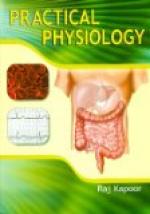The state of mind has much to do with digestion. Sudden fear or joy, or unexpected news, may destroy the appetite at once. Let a hungry person be anxiously awaiting a hearty meal, when suddenly a disastrous telegram is brought him; all appetite instantly disappears, and the tempting food is refused. Hence we should laugh and talk at our meals, and drive away anxious thoughts and unpleasant topics of discussion.
The proper chewing of the food is an important element in digestion. Hence, eat slowly, and do not “bolt” large fragments of food. If imperfectly chewed, it is not readily acted upon by the gastric juice, and often undergoes fermentative changes which result in sour stomach, gastric pain, and other digestive disturbance.
If we take too much drink with our meals, the flow of the saliva is checked, and digestion is hindered. It is not desireable to dilute the gastric juice, nor to chill the stomach with large amount of cold liquid.
Do not take food and drink too hot or too cold. If they are taken too cold, the stomach is chilled, and digestion delayed. If we drink freely of ice-water, it may require half an hour or more for the stomach to regain its natural heat.
It is a poor plan to stimulate a flagging appetite with highly spiced food and bitter drinks. An undue amount of pepper, mustard, horseradish, pickles, and highly seasoned meat-sauces may stimulate digestion for the time, but they soon impair it.
[NOTE. The process of gastric digestion was studied many years ago by Dr. Beaumont and others, in the remarkable case of Alexis St. Martin, a French-Canadian, who met with a gun-shot wound which left a permanent opening into his stomach, guarded by a little valve of mucous membrane. Through this opening the lining of the stomach could be seen, the temperature ascertained, and numerous experiments made as to the digestibility of various kinds of food.
It was by these careful and convincing experiments that the foundation of our exact knowledge of the composition and action of gastric juice was laid. The modest book in which Dr. Beaumont published his results is still counted among the classics of physiology. The production of artificial fistulae in animals, a method that has since proved so fruitful, was first suggested by his work.]
It cannot be too strongly stated that food of a simple character, well cooked and neatly served, is more productive of healthful living than a great variety of fancy dishes which unduly stimulate the digestive organs, and create a craving for food in excess of the bodily needs.
168. The Proper Care of the Teeth. It is our duty not only to take the very best care of our teeth, but to retain them as long as possible. Teeth, as we well know, are prone to decay. We may inherit poor and soft teeth: our mode of living may make bad teeth worse. If an ounce of prevention is ever worth a pound of cure, it is in keeping the teeth in good order. Bad teeth and toothless gums mean imperfect chewing of the food and, hence, impaired digestion. To attain a healthful old age, the power of vigorous mastication must be preserved.




